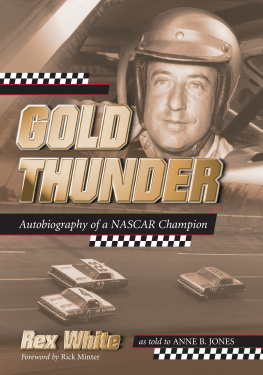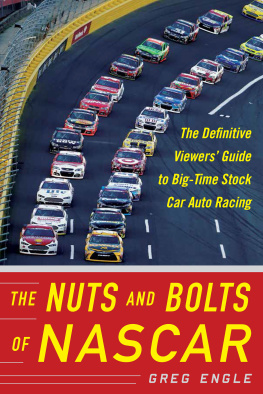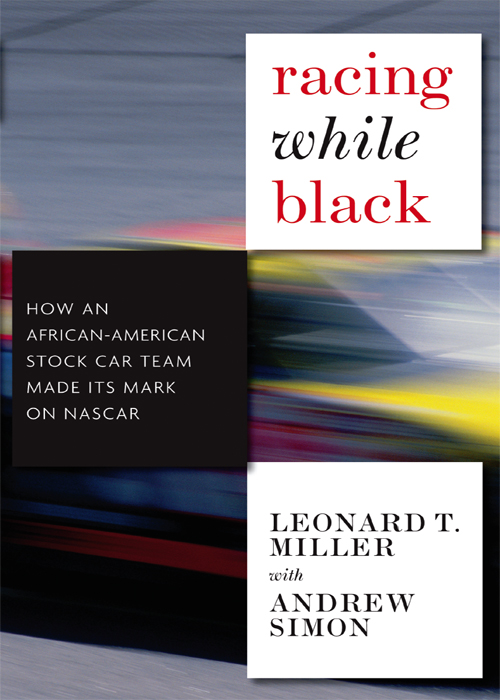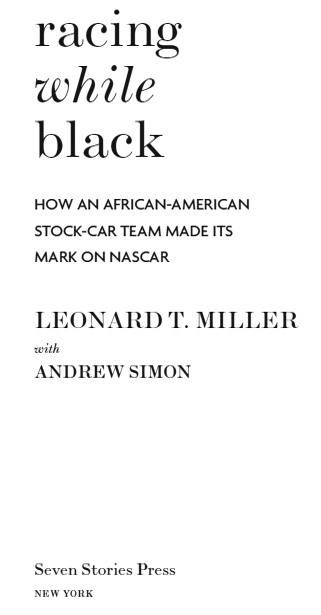Copyright 2010 by Leonard T. Miller and Andrew Simon
A SEVEN STORIES PRESS FIRST EDITION
All rights reserved. No part of this book may be reproduced, stored in a retrieval system, or transmitted in any form or by any means, including mechanical, electronic, photocopying, recording, or otherwise, without the prior written permission of the publisher.
Seven Stories Press
140 Watts Street
New York, NY 10013
www.sevenstories.com
In Canada: Publishers Group Canada, 559 College Street, Suite 402, Toronto,
ON M6G 1A9
In the UK: Turnaround Publisher Services Ltd., Unit 3, Olympia Trading Estate, Coburg Road, Wood Green, London N22 6TZ
In Australia: Palgrave Macmillan, 1519 Claremont Street, South Yarra, VIC 3141
College professors may order examination copies of Seven Stories Press titles for a free six-month trial period. To order, visit www.sevenstories.com/textbook or send a fax on school letterhead to (212) 2261411.
Library of Congress Cataloging-in-Publication Data
Miller, Leonard T.
Racing while black : how an African-American stock-car team made its mark on nascar / Leonard T. Miller with Andrew Simon.
p. cm.
eISBN: 978-1-58322-938-5
1. Automobile racing driversUnited StatesBiography.. African American automobile racing driversBiography. I. Simon, Andrew. II. Title.
GV 1032. M 44 2010
796.720922
[B]
2009037885
v3.1
Contents
Foreword
I have been watching more and more racing lately, and am keenly aware of the important part NASCAR and its stars play in advertising. How else would I have heard of Jeff Gordon, Tony Stewart or Dale Earnhardt Jr.?
My expertise is in the multi-million-dollar business of sports. I know how crucial motorsports are in my field. I also know how minimal the role of blacks is in the business of sports generally, and of motorsports in particular. While blacks dominate on the playing field in many sports, their role in the front office is still limited. In motorsports, the limitations are not only in the front office, but also on the field of play.
In this day and age, any sector of society in which the television viewership, live gate, and sponsorship packages are so large that billions of dollars are associated with it, clearly lacks something when the powers behind the business are not diverse. The arguments for diversity range from business justifications as a way of broadening the customer base, to the social goal of looking more like America, rather than only white America. I should be clear that my primary concern is racial diversity. Other issues are important, including the international aspect, gender, and sexual orientation, but race in America plays a special, historic roleparticularly in motorsports.
A good friend of mine, an African-American, is a former government official of the state of Indiana. He grew up in Indianapolis, where he attended public schools. While we were in college, he and his brother would always talk about going to the500 as children. What could that be all about? I wondered. Every now and then thered be a flurry about something black in racing, like Willy T. Ribbs, or George Mack starting a team, but I didnt know any black racing fans personallynot until I met these guys.
For at least twenty years, my friend and his brother invited me to go with them to the Indianapolis 500: to attend the parade the day before, to hear Jim Nabors and Florence Henderson sing the opening songs, to hear the same old guy say, Gentlemen, start your engines. They spoke about the day and about race week with such passion. I didnt get it.
Finally, in 2005, I took them up on their offer and brought my family along. Pretty quickly I understood what it was all about. All that hyperbole about being the greatest sports spectacle on earth, the history of the race, the pride of the people who put on the event. It all came across in an incredibly powerful way.
On race day I found myself with a few hundred thousand other people, rising up in the stands cheering on Danica Patrick as she became the first woman to hold the lead in Indy history. I didnt miss a second of the irony of me sitting with a row full of black folks in a track filled with white folks, caught up in the excitement. Every face I saw was cheering for the underdog girl. I did wonder whether the crowd would have had the same reaction if this had been the first black driver in this position. Racing While Black will give you a better understanding of the issues to evaluate before making that call.
Why didnt I know more about this whole motorsports world? Why hadnt I been before? Why had no one in my social or business orbit been? By attending that one event, I began to understand the pull of motorsports. But I also realized that this was only one type of car. I still had little clue about NASCAR, ARCA, NHRA, F1, CART, and all the other abbreviations and acronyms of the motorsports world.
I grew up in Los Angeles. Occasionally in high school and on visits home from college, while roaming around town on a Friday or Saturday night, my buddies and I would wander into Beverly Hills or Hollywood and cruise looking for a secret night club no one else knew about. Every now and then wed walk into a place that had shrimp on ice, champagne, and cracked crab laid out. Before we were chased out, wed soak it in and say to each other, yeah, there is a world going on here that we know nothing about.
Years later on Saturday Night Live, Eddie Murphy did a skit where he disguised himself as a white man. In his voiceover, he described all that he usually encountered as a black man, and how much easier life was as a white man. Things he traditionally paid for were free; he didnt have to fill out forms for transactions. On a bus, a party broke out when the last black man got off and only whites (and the disguised Murphy) remained on board. Murphy delivered dry comedy and biting social commentary at its best.
All of this my friends and I have come to call secrets from the black mana phrase that sounds like an old headline from Muhammad Speaks, the old paper of the Black Muslims.
Well, heres a book that takes you into a world that is almost a complete secret from the black man. We dont have an Eddie Murphytype guide who can clandestinely provide us with all the insights one could get only as a true white insider. But Racing While Black gives you something more. This is the story of a family, and of the businesses and individuals associated with them, who have strived for NASCAR success, and uncovered many secrets along the way.
Not only does Racing While Black depict the little-known efforts of these African-Americans in racing but, in doing so, it takes you through the greater history of blacks in motorsports. So look forward to learning about a great business, look forward to learning the secrets of motorsports, and look forward to getting the guidance one needs to be successful in a business that now plays a powerful role in the global economy. Fasten your shoulder harness.
Kenneth L. Shropshire
David W. Hauck Professor at the Wharton School
Director, Wharton Sports Business Initiative
Wharton School
University of Pennsylvania
Philadelphia, Pennsylvania
January 2010
For Lauren C. Miller, my legacy.
Acknowledgments
LEONARD T. MILLER









